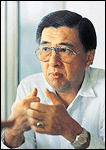 Feature by the Nihon Keizai Shimbun Feature by the Nihon Keizai Shimbun
(This was featured as a series in “Hito Scramble” column of the Nihon Keizai Shimbun evening issue for five days from July 11, 2005, Monday, through July 15, 2005, Friday)
(Translated by Kanichi Kimura, Tokyo, July 22, 2005.)
INTERNATIONAL DIPLOMATS IN JAPAN
DOMINGO L. SIAZON, JR., PHILIPPINE AMBASSADOR TO JAPAN
PROFICIENT IN NIHONGO, WELL-INFORMED ON THE JAPANESE CULTURE, HE HAS STAYED 24 LONG YEARS IN EUROPE, SUCCESSIVELY EXECUTED KEY ROLES IN AND OUTSIDE THE PHILIPPINES, AND SYSTEMATIZED THE NURSE (CARE-GIVER) DISPATCH PROGRAM, WORKING ON ITS ACCEPTANCE IN JAPAN.
The Japan Economic Newspaper Evening Issue NIHON KEIZAI SHINBUN started a special column on international diplomats and Philippine Ambassador to Japan, Domingo L. Siazon, Jr. was chosen as its introductory feature.
Ambassador Siazon speaks: “ When I was here for the first time as Ambassador in 1993, I started the trained-nurse talks with concerned Japanese authorities. Although its negotiation is still under way, at long last, we reached to its fundamental agreement for Japan to adapt it. Yet, its agreed number is only 200. It is a too small number considering Japan’s total population.
Although I know that Japan tends to take her time in making any changes, I am sure that Japan will need foreign nurses and care-givers for patients without fail as its number of old people increases. Japan is a practical country. When the shortage of nurse becomes critical, she will ask us “Please provide us with the extra nurses.” The Philippines is a young country. So we can still wait.
My first visit to Japan was in 1959 as a scholar student. So far I had three visits to Japan – as a scholar student and as a diplomat – the total length became 14 years. I named my two sons as Dan and Ken, respectively, considering these names sound significant either to Japanese or to foreigners. Speaking of my friends, they range from personal friends to public ones. There are so many that I can hardly count them all. Personally, there are my school alumni and friends through my wife. In the public circle, there are many politicians, economists among others.
The Heisei-kai members are composed of 11 ambassadors from Great Britain, China, Hungary, Sudan, and so on. We invite influential personalities from political and financial fields and exchange opinions in Nihongo. The other day we invited Mr. Tanigaki, your Treasury Minister.
I started sending Philippine nurses abroad about 20 years ago when I was an Ambassador to Austria. While the then Austrian Prime Minister Krisky was being treated in a Vienna hospital, young Filipina nurses who were working abroad had taken care of him. He grew fond of them who tended him with constant smile and kindness. Then he told me: “ Please send us Philippine staff in quantities.” Wasting no time, I worked with the Vienna City to systematize its accommodation law and offered 200 trained Philippine nurses yearly. After this, our country enacted the system of sending nurses abroad. Thus we are suggesting it to Japan.
In fact, my total length of stay in Europe is 24 years, exceeding that of Japan. While in Europe, I served as the Philippine Representative of IAEA (International Atomic Energy Agency), Philippine Ambassador to Austria, and as Director General of UNIDO.
It happened outside of Japan that I made acquaintances with Japanese such as former Japanese Under Secretary General of the UN, Mr. Yasushi Akashi, and former Commissioner of UN, Mrs. Sadako Ogata (present Chairman of Japan International Cooperation Agency (JICA). I can speak other languages such as German, French, and Spanish, because I had frequent contacts with African, and Central South American countries. I was elected as the chairman of a gourmet friendly group called “Club Gastronome” which is composed of foreign ambassadors to Japan who are capable of speaking French. I am quite confident that my colorful career had its origin from my scholarship study in Japan.
I was born in 1939, in a harbor town of Aparri, located at the northern edge of Luzon Island. This is the town nearest to Japan. The occupation of my father was a member of the parliament, and my mother’s family was engaged in commerce. I was the eldest son among the children of 4 boys and 7 girls. Our family moved to the capital city of Manila when I was a second grader in the primary school. From the faculty of politics in the Ateneo de Manila, a private university, I graduated with a silver medal award.
On my mother’s suggestion, I took an examination for the Civil Service. My exam result was included among the top five. Before I took it, I did not know that the top five were entitled to a Japanese Scholarship offer. But I declined this offer as I thought five years were too long for me. But my teacher’s encouraging words that “Japan is interesting” made me accept it and go. Secretary Michihiko Kunihiro, who was then in-charge of Cultural Section at The Japanese Embassy in Manila, was my first Japanese friend.
In order to master Nihongo, I entered the Tokyo Foreign Language University as my first step. I endeavored to study eight hours a day to master the currently used Kanji. I struggled with Kanji lesson even on the train and in the toilet. All the scholarship students had top class mentality in their home country. But the Kanji study was so difficult that some of them were mentally confused.
You might think that I was poor because I was a Filipino scholar student. My scholarship salary per month was 20,000 yen. In those days, an average Japanese salaryman received 13,600 yen monthly. My father gave me 500 dollars (180,000 yen) as Xmas present. A lunch with a raw egg cost me 13 yen. In fact, I had a comfortable life.
During those days in Japan, the Japanese people were kind and rendered help to scholar students from the Southeast Asia. I remember very well the deeds of the wife of the then Mitsubishi firm president. She might have had a guilty feeling for the ill-treatment of the Japanese military men on our people during the war. I was much grateful to her for her kindness.
Japanese became affluent. But I feel that the Japanese on those days had much decent minds. It makes me uneasy to hear that young people of the present generation speak differently.
My wife was a member of ESS (English Speaking Society) in Aoyama Gakken University. She was so pretty and I fell in love with her as we had a group relation.
After graduating from Tokyo Foreign Language University, I entered The Tokyo Education University (now Tsukuba University) wherein Dr. Shinichiro Tomonaga, a Nobel Prize awardee, was teaching. Although I had another choice, The Kyoto University wherein Dr. Hideki Yukawa, also a Nobel Prize awardee, was teaching, I preferred to stay in Tokyo so that I can see my girlfriend more often.
I grew interested in physics because it had connection with philosophy, which I had studied in the Philippines. At the Ateneo de Manila University, I learned the knowledge to have a healthy body and mind and to do one’s utmost on everything a person engages. Dr. Tomonaga’s examination was “Solve the Schroedinger Equation.” To understand quantum mechanics this is a crucial equation. He insisted: “You will not understand my lecture unless you understand this Equation Theory.” The entire class, including me, had to take a make-up examination.
The father of my girlfriend was a strict university professor. He was against the international marriage. I took the trouble to look into about 10 marriages between male Filipinos and female Japanese, and I found out that the cause of its failure derived from educational gap and the lack of financial support. I assured her father that we will have no trouble in such matter, and he consented finally.
I also consented to my girlfriend’s request. She was not fond of politics. So, I decided to become a diplomat. I found a work in the consular section of the Philippine Embassy in Tokyo. I promised to her father that I shall be an ambassador to Japan without fail in the future. I tried my best and passed the diplomatic service examination.
In October 1967, I was asked to act as an interpreter for a top-level conference held in Manila between the former Japanese Prime Minister Eisaku Sato and President Marcos. While the two leaders were riding in the president’s private car, I sat in the front seat and facing backward interpreted the conversation between the two. After the period of work was over, the President told me to ‘Go to Switzerland’ as if he suddenly remembered it. At that time, the Philippine government was entertaining the idea of constructing its first atomic power plant. It became necessary for our government to join the International Atomic Energy Agency (IAEA) based in Vienna, Austria, in order to keep a close contact with the agency including technical matters.
Our embassy in Berne, Switzerland had an access to IAEA but it was not manned with specialist in atomic power. So the then Philippine ambassador to Berne requested the President through a letter to dispatch a specialist on it. I studied Physics in Japan because I took interest in the uncertainty of Dr. Heiszenberg, a German Nobel Prize awardee in Physics. Anyhow, I was familiar with nuclear power. Thus I was chosen for the post.
I took this transfer as a good sign for me. So did my wife. In Vienna, we did not have any diplomatic base then. In 1968, we transferred to the Philippine Embassy in Berne, Switzerland. Immediately, I started to study German and French. Switzerland was an affluent country without war. Peaceful and it offered a comfortable living environment to my family.
One day, I was seated at the Philippine representative seat of IAEA Board of Governors. Japanese Ambassador Shinsaku Hogan (former Vice Minister for Foreign Affairs) told me, “Hey Mister! You are sitting on a wrong seat. That seat is for the Philippines.” I was mistaken as one of the young members from Japanese delegation. I was acting Ambassador to Vienna for four years from 1973. Through my work, I became aware that I lacked the knowledge on economics. So I took a course on economics at Kennedy school of Harvard University in America for one year in 1978 on a sabbatini leave. I am a member of its alumni association in Japan. After returning from the US in 1979, I was made the representative for IAEA and UN Industrial Development Organization (UNIDO), and in 1980 I took the post as Philippine Ambassador to Austria at the age of 41. As a career diplomat, I became the youngest ambassador in the Philippine history. My wife also began to serve in the UN Organization in Vienna.
My significant work at IAEA was Convention on the protection of nuclear material. We must protect the storing of nuclear from terrorists. At present, the protecting object was expanded to the transferring of nuclear material, and its countermeasure is under study. Other member countries showed high appreciation for my activity.
Backed by the support from the member-countries, I ran for the seat of IAEA Director General in 1981. I was anxious to stop its monopolization by Europeans and Americans. The voting was repeated 36 times in three months, and at the final voting I was defeated. The winner was Mr. Hans Bliz. He stayed in his post for four terms or 16 years.
Learning a lesson from the former entangled election in which northern and southern community confronted each other, IAEA decided to choose the next secretary general from a developing country and appointed Mr. Elbaradai of Egypt as the successor of Mr. Bliz. Recently I heard news that Mr. Elbaradai was reelected for his third term. I flattered myself because my effort was not spent in vain.
I enjoyed my off duty hours. In my school days, I mastered alpine skiing to make up for my unit shortage in physical education and I enjoyed it in Switzerland. I made friends with two young Filipinos who came to Switzerland for business and acquired the art of skiing, and we encouraged each other to participate in the Sapporo Winter Olympic Games in 1972. If we want to participate in the Olympics, we must have a ski organization within the country. There is no such organization in the snow-less Philippines. I established a Philippine ski association in Switzerland and the first Philippine skiers were sent to the said Winter Olympics.
As I was taking part in UNIDO activity and had felt that it was worthwhile to help the developing countries to achieve its economic growth, I ran for the post of Director General. I received assistance from Mr. Ryohei Murata, the then Japanese ambassador to Vienna (former Vice Minister of Foreign Affairs), and I was elected as the Director General in 1985.
I put stress on the practical use of private enterprises. It was an undertaking of worldwide scale. Examples are the building of a cement factory by Ishikawajima-Harima Heavy Industry in North Yemen, the introduction of Chinese mineral water market by French Vittel Company, or the cooperation with Japan International Development Organization (JAIDO).
As Director General, I had consulted with many international leaders such as Chairman Walesa of Poland, Chairman Ri Sho of China, Chairman Kim Jong Il of North Korea. Chairman Kim showed his interest in Japanese cooperation.
The personages of Japanese private enterprises, such as the director of Seiko Epson Company Ichiro Hattori, offered their cooperation to a great extent. I gave an award to the honorary president of Kyocera Kazuo Inamori in connection with a new material development.
In February 1987, the US Wall Street Journal featured a wide column on my activity. A caricature of my face was included in the said column. Its headline read: “UNIDO Attaches Importance to the Private Sectors.”
I was reelected as Director General of UNIDO. Soon after former President Ramos assumed his office, he requested me to return home (The Philippines) and assigned me to Japan as ambassador. It (government) might have expected my active role because I had various relations with Japan. In Japan, customarily, the government does not send an ambassador to a post country if his wife’s nationuality and the assigned country concur. It is otherwise in the Philippines. Although I had a dream of becoming an ambassador to Japan in my future, I was still duty-bound as Director General of UNIDO for a remaining one year, so I was reluctant in accepting the request from our President.
The President in turn said, “I shall wait until you finish your term. I hope you will offer your capability in serving your nation and people.” I could not find any excuse to refuse.
The President once promised that he would wait. But soon he scheduled to make a state visit to Japan in March 1993. He directed me to report to him in time for his visit. Finally, after making an apology to UNIDO’s member countries, I was able to obtain their approval for my resignation plea from the Director General duty. The Japanese Foreign Ministry helped me assume my duty in time for the Philippine President’s first state visit to Japan.
As an ambassador, I managed to construct a line of mutual connection between influential politicians, including Mr. Taro Nakayama, former Foreign Minister (now Japan-Philippine Friendship Dietmen League Chairman), and the opposition leaders. My knowledge of Nihongo was quite helpful.
I was expecting that my term as an ambassador would continue until 1998. Beyond my expectation, a critical problem happened in the Philippine diplomacy and our foreign minister was obliged to resign. It happened in April 1995. A communication from the foreign minister in Manila was sent to me. It stated, “We are informing you, before we make an announcement one hour later, that ‘You will be our next Foreign Minister.’ It was a surprise for me. The Philippines had no former record of a career diplomat becoming the Foreign Minister. Usually, politicians are appointed as Foreign Minister. Prior to this, three days before the announcement was publicized, I had lunch with President Ramos but he did not say anything about my being assigned as the next Foreign Minister.
As a Filipino, I was engaged in the highest position within the International Organization. My promotion might have been derived from this fact. Aside from me, there were several candidates including the then Vice Foreign Minister. I had no choice than to accept it. About 30 years ago, I decided to thread my path as a career diplomat because I met my wife. Against my original plan, I became a Foreign Minister. I believe this has its origin in my scholarship study in Japan.
My six years of serving as a Foreign Minister was very busy. We had territorial conflict with China on the Mischief Reef. Our relationship with Singapore became perilous when a Filipina maid was sentenced to death. A negotiation to reopen the joint military exercises with the US Forces. Facing these important matters, I tried to make myself calm and sought for their rational solutions.
As to our diplomatic relations with Southeast Asian countries, I disagreed with their traditional principle of “ No intervention policy in internal affairs.” If we neglect the internal problems of one’s nation, it will remain unstable in a long scope. I tackled the problems of other countries, like the problem of East Timor, democratization of Myanmar, and the settlement among Cambodian parties.
I helped to tighten the relations between ASEAN and Japan. I prepared to hold the conference of top leaders from Japan, China, and Korea in Manila in November 1999. Prime Minister Obuchi suggested to hold this conference. Thailand Foreign Minister Surin and I worked together to bring North Korea into ARF (ASEAN Region Forum) in which we discussed its regional security. We established formal diplomatic relationship with North Korea in July 2000, as it became necessary through the process.
I had many occasions to talk with leaders of the world, and these were valuable experiences for me. When I accompanied former President Ramos during his talks with then US President Clinton, the latter asked me about the Japan economic vitalization measures for 20 or 30 minutes. The same thing happened when I accompanied former President Estrada, even though I was the Foreign Minister and not a Finance Minister.
The official language on talks with Chinese Foreign Minister Tang Jia Xuan was English. When the discussion became delicate, we directly conversed in Japanese. When we realized that a political conversation between Foreign Ministers of Japan, China, Korea and I turned into a meeting in Nihongo, we all burst into laughter.
Former Malaysian Prime Minister Mahathir was the most impressive politician for me. Through a number of my talks with him, I was much impressed by his strong but flexible conviction as a politician. Despite of the election pressures, he dared to enforce drastic policy. He was able to lift up his country’s status to its level.
The transition of a Cabinet accompanies that of a Foreign Minister. In June of 1998, Mr. Estrada, winner of the Presidential Election, requested me to remain in my post. As I said before, I did not lead my way as a politician. Even after I became foreign minister, I kept away from the conflicts between the political parties. I tackled with foreign affairs placing importance on our national welfare. Mr. Estrada must have evaluated me as such.
We must continue to hold discussions with China and Korea. And so with Germany and France although they are not in good terms with each other. China and the Philippines confronted each other over the territorial waters problem, but we continued our talks. In case anything happened between Japan and China, both sides seem to lack enough patience. So it is my advice ‘never to stop the mutual discussion.’
Japan should concede to smaller countries in concluding economic alliance with them. Japan has strong economic power. If Japan tries to protect her domestic welfare too much, it will be difficult to achieve a successful settlement. America is conceding to the developing countries in Central-South America as much as possible.
I was asked by President Arroyo to ‘please go to Japan once more immediately after her new cabinet was formed. Commonly, after serving as a Foreign Minister, he will not accept the post of an Ambassador. This is quite unusual. I would have refused it if my destination was not Japan.
My destiny was decided when I came to Japan as a scholar student and married my wife. I deem my life is very fortunate, as my two sons appear to be doing well as investment bankers. I think I will still marry my wife if I must marry again.
I am still young. Next year will be the 50th year of Japan-Philippine Friendship after the normalization of their diplomatic relations. So far I have many things to do, like strengthening friendly relations between these two nations. I was brought up in two societies – the Philippines and Japan. I want to labor myself in bringing prosperity to these countries where I was raised. And I also wish to work on the welfare of other countries in East Asia and for the rest of the world. I am intending to do what I can.
|



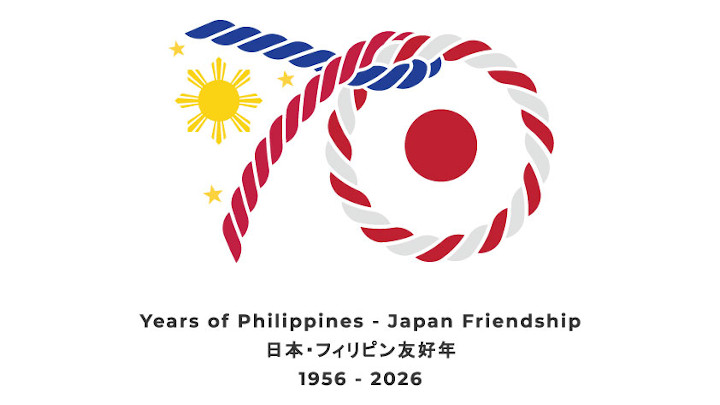
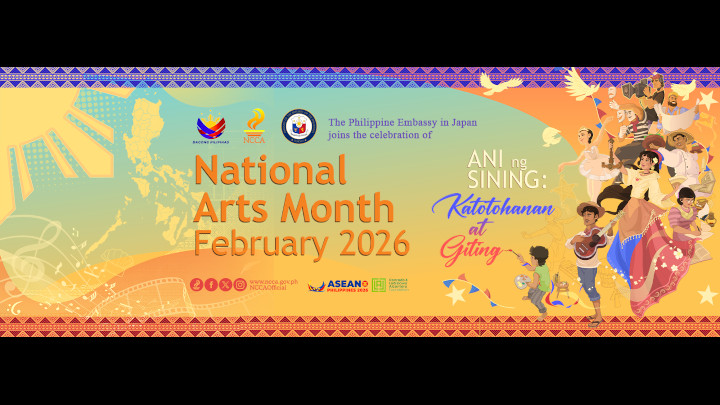
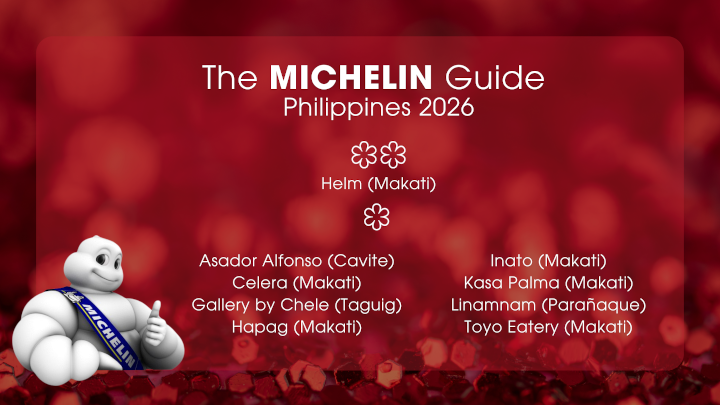










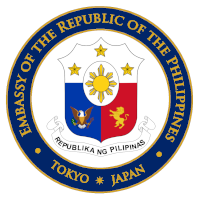
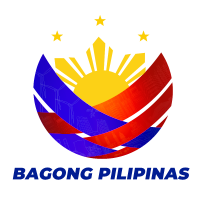

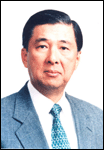
 Feature by the Nihon Keizai Shimbun
Feature by the Nihon Keizai Shimbun





